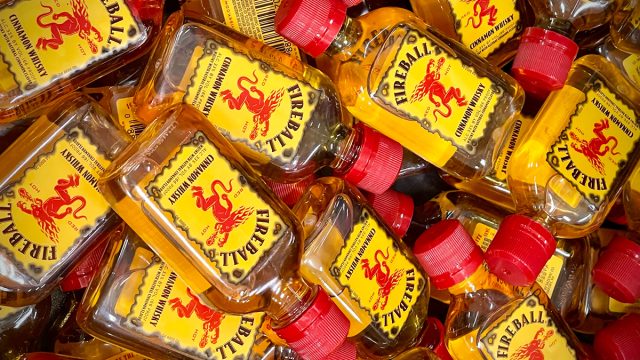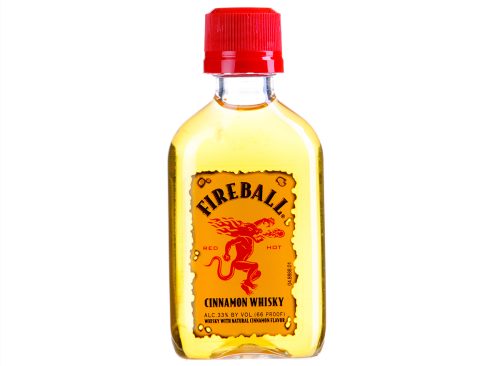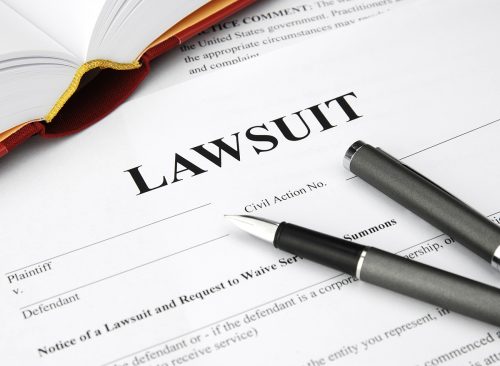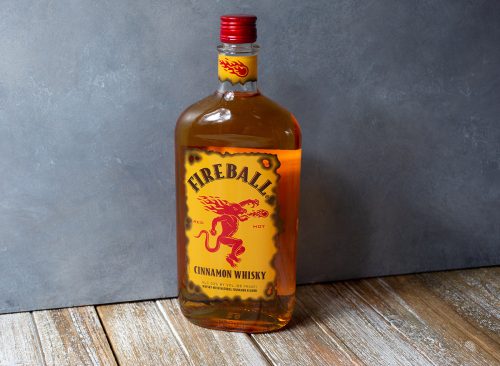Woman Sues Makers of Fireball Whiskey Mini Bottles That Actually Don’t Contain Whiskey
Company accused of deceptive labeling.

A Chicago woman has sued the makers of Fireball cinnamon-flavored whiskey after discovering the brand’s miniature bottles don’t actually contain any whiskey. On Jan. 7, Anna Marquez filed suit in the United States District Court Northern District Of Illinois over what she calls deceptive labeling on Fireball Cinnamon. Made by parent company Sazerac, Fireball Cinnamon is a line of products that include malt-based and wine-based beverages that don’t contain any actual whiskey. Read on to find out more—including what the lawsuit says, the legal basis for the claim, and why the filing attorney is highly experienced in this field.

Miniature bottles of Fireball Cinnamon are carried in stores that can only sell beer, malt beverages, and wine products, like gas stations and grocery stores, Today.com reported. But Fireball Cinnamon isn’t the same product as Fireball Cinnamon Whisky, which actually contains whisky.
The lawsuit alleges that the labels of the two different products— “Fireball Cinnamon Whisky” and “Fireball Cinnamon”—are nearly identical. the malt- or wine-based version of Fireball misleads “consumers into believing it is or contains distilled spirits.” Marquez says she bought bottles of Fireball Cinnamon, assuming they contained whiskey.

The lawsuit also claims that the fine-print text on Fireball Cinnamon bottles is misleading. It alleges “With Natural Whisky & Other Flavors” is a “clever turn of phrase” because “consumers who strain to read” the label will assume the phrase “Natural Whisky” is a separate item from “Other Flavors.” “They will think the Product is a malt beverage with added (1) natural whisky and (2) other flavors,” the lawsuit says.
“What the label means to say is that the Product contains ‘Natural Whisky Flavors & Other Flavors,’ but by not including the word ‘Flavors’ after ‘Natural Whisky,’ purchasers who look closely will expect the distilled spirit of whisky was added as a separate ingredient.”

“When viewed together with the Fireball distilled spirit brand name, the label misleads consumers into believing it is or contains distilled spirits,” the lawsuit claims. It contends that although the use of the Fireball brand name on malt-and wine-based beverages is legal, “the overall misleading impression created” by Fireball Cinnamon is not. “Expecting those small bottles labeled “Fireball Cinnamon” to contain whisky “[was] an easy mistake to make, and one intended by the manufacturer,” the lawsuit says.

The suit claims Sazerac violated state consumer fraud statutes, breached express warranty and benefitted from unjust enrichment and seeks to represent “more than 100” plaintiffs in addition to Marquez, who purchased the item at “thousands of stores including grocery stores, big box stores, gas stations and convenience stores.” Sazerac said it would not comment on litigation in process.

The class-action suit aims to cover anyone in Illinois, North Dakota, Wyoming, Idaho, Alaska, Iowa, Mississippi, Arkansas, Kansas, Arizona, South Carolina, or Utah who purchased Fireball Cinnamon. The amount of damages for plaintiffs would exceed “$5 million, including any statutory and punitive damages,” the suit says.
Marquez’s attorney, Spencer Sheehan, is well known for bringing lawsuits against big food and drink companies on behalf of consumers. He’s filed more than 400 of them, including one that claimed Frito-Lay didn’t include enough real lime juice in its “Hint of Lime” Tostitos chips, and another that claimed Velveeta’s Shells & Cheese took more than three-and-a-half minutes to make.














